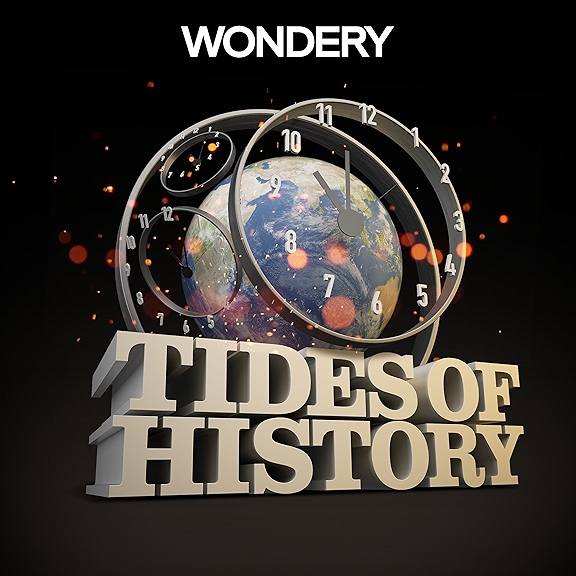
The Tributary System and Chosŏn-Ming Relations: A Conversation with Professor Sixiang Wang
In our previous episodes, the term "tributary system" has come up a few times, yet we've never had the opportunity to explain what exactly it is. To better shed light on this topic, and as part of our exploration of Chinese diplomacy, we interviewed Professor Sixiang Wang, an Assistant Professor of Korean history at UCLA who specializes in the diplomatic relationship between Chosŏn Korea and Ming China and Early Modern East Asia. In this episode, Professor Wang will first explain what the tributary system is as a historiographical concept and how it is often used to view China's diplomatic engagement with the outside world, before giving us a more detailed look into the diplomacy between Chosŏn and Ming and how this diplomatic interaction complicates the simple narrative of the tributary system.
P.S. Don't forget to check out this awesome podcast on the steppe nomads at Nomads and Empires!
Contributors
Sixiang Wang
Sixiang Wang is an Assistant Professor in the Department of Asian Languages and Cultures at UCLA. He is a historian of Chosŏn Korea and early modern East Asia, and his research interests also include comparative perspectives on early modern empire, the history of science and knowledge, and issues of language and writing in Korea’s cultural and political history. His current book project reconstructs the cultural strategies that the Korean court deployed in its interactions with Ming China through an examination of poetry-writing, gift-giving, diplomatic ceremony, and historiography, and it underscores the centrality of ritual and literary practices in producing diplomatic norms, political concepts, and ideals of sovereignty in the construction of a shared, regional interstate order.
Yiming Ha
Yiming Ha is a Ph.D. candidate in the Department of History at the University of California, Los Angeles. His current research is on military mobilization and state-building in China between the thirteenth and seventeenth centuries, focusing on how military institutions changed over time, how the state responded to these changes, the disconnect between the center and localities, and the broader implications that the military had on the state. His project highlights in particular the role of the Mongol Yuan in introducing an alternative form of military mobilization that radically transformed the Chinese state. He is also interested in military history, nomadic history, comparative Eurasian state-building, and the history of maritime interactions in early modern East Asia. He received his BA from UCLA and his MPhil from the Hong Kong University of Science and Technology.
Credits
Episode No. 4
Release date: December 12, 2021
Recording location: Los Angeles, CA
Bibliography courtesy of Professor Sixiang Wang
Images
Cover Image: "Myŏngnyun Hall" 明倫堂, Hanging board with calligraphy by the 1606 Ming envoy Zhu Zhifan 朱之蕃, Sunggyun'gwan University (photographed by Prof. Sixiang Wang)
Chosŏn Envoys Traveling to Ming China by Sea, by Yi Tŏkhyŏng. It details an envoy mission which travelled to Ming China in 1624. One of a set of 25 paintings, currently held in the National Museum of Korea and reproduced with permission here (Image Source)
Reception of Ming envoys, unknown painter, currently held in the National Museum of Korea and reproduced with permission here (Image Source)
Collection of Poems by a Ming Envoy and the Scholars of the Chosŏn Dynasty. A collection of poetic exchange by the 15th century Ming envoy Ni Qian 倪謙 and three Korean scholars, currently held in the National Museum of Korea (Image Source)
Select Bibliography
Bohnet, Adam. Turning Toward Edification: Foreigners in Chosŏn Korea. Honolulu: University of Hawai’i Press, 2020. Cha, Hyewon. “Was Joseon a Model or an Exception? Reconsidering the Tributary Relations during Ming China.” Korea Journal 51, no. 4 (Winter 2011): 33–58. Fairbank, John King. The Chinese World Order: Traditional China's Foreign Relations. Cambridge, Mass.: Harvard University Press, 1968. Fairbank, John King and S. Y. Teng. "On the Ch'ing Tributary System." Harvard Journal of Asiatic Studies 6 (1941): 135-246. Jung Donghun. “From a Lord to a Bureaucrat – the Change of Koryŏ King’s Status in the Korea-China Relations.” The Review of Korean Studies 19, no. 2 (December 2016): 115–36. Kang, David. East Asia Before the West: Five Centuries of Trade and Tribute. New York: Columbia University Press, 2012. Robinson, David M. “The Ming Court and the Legacy of the Yuan Mongols.” In Culture, Courtiers, and Competition : The Ming Court (1368-1644), edited by David M. Robinson, 365–422. Harvard East Asian Monographs 301. Cambridge, Mass.: Published by the Harvard University Asia Center: Distributed by Harvard University Press, 2008. Robinson, Kenneth R. “Centering the King of Chosŏn.” The Journal of Asian Studies 59, no. 1 (2000): 33–54. Van Lieu, Joshua. “Chosŏn-Qing Tributary Discourse: Transgression, Restoration, and Textual Performativity.” Cross-Currents: East Asian History and Culture Review, no. 27 (June 2018): 79–112. ———. “The Tributary System and the Persistence of Late Victorian Knowledge.” Harvard Journal of Asiatic Studies 77, no. 1 (July 27, 2017): 73–92. https://doi.org/10.1353/jas.2017.0005. Wang, Sixiang. “Chosŏn’s Office of Interpreters: The Apt Response and the Knowledge Culture of Diplomacy.” Journal for the History of Knowledge 1, no. 1 (December 17, 2020): 9. https://doi.org/10.5334/jhk.17. ———. “Compiling Diplomacy: Record-Keeping and Archival Practices in Chosŏn Korea.” Journal of Korean Studies 24, no. 2 (September 1, 2019): 255–88. https://doi.org/10.1215/07311613-7686588. ———. “Korean Eunuchs as Imperial Envoys: Relations with Chosŏn through the Zhengde Reign.” In The Ming World, edited by Kenneth Swope, 460–80. Abingdon, Oxon; New York: Routledge, 2020. ———. “The Sounds of Our Country: Interpreters, Linguistic Knowledge and the Politics of Language in Early Chosŏn Korea (1392–1592).” In Rethinking East Asian Languages, Vernaculars, and Literacies, 1000–1919, edited by Benjamin A. Elman, 58–95. Leiden, Netherlands: Brill, 2014.



















